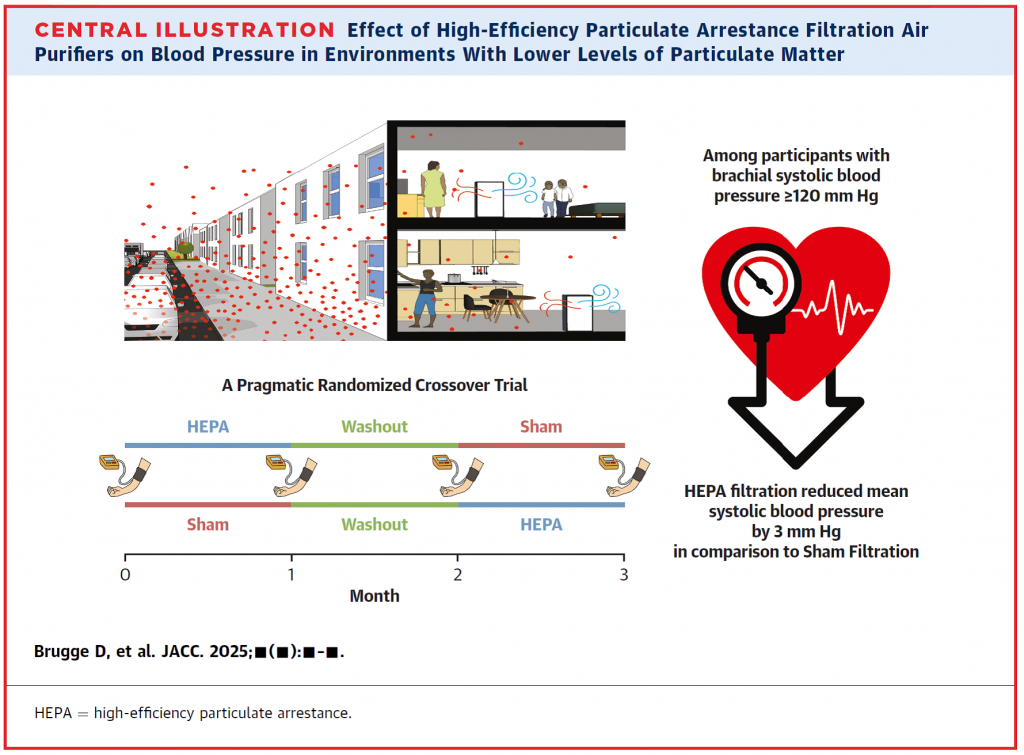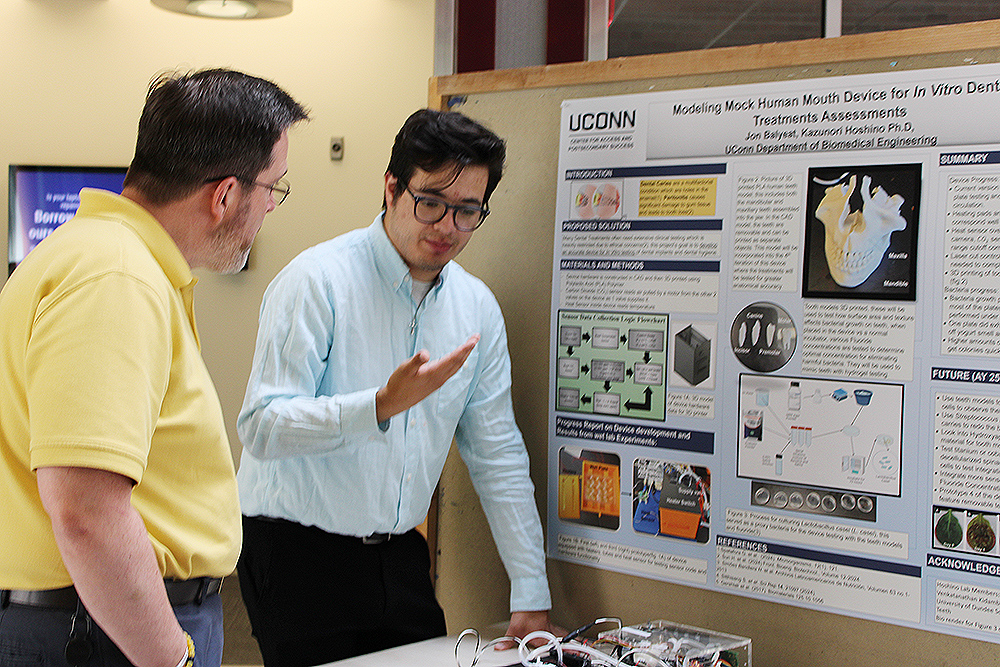Air Purifiers May Reduce Heart Risks for People Exposed to Traffic Pollution
Using portable high-efficiency particulate air purifiers at home can significantly lower systolic blood pressure in adults with elevated baseline readings — even in areas with relatively low overall air pollution levels, according to a study published August 6 in JACC, the flagship journal of the American College of Cardiology.
Particulate matter is a major contributor to air pollution and is strongly associated with cardiovascular disease. People living near high-traffic roadways are frequently exposed to elevated levels of particle matter from vehicle emissions as well as tire and brake wear. These fine particles can infiltrate homes and affect residents, increasing the risk of hypertension and elevated blood pressure – both major cardiovascular disease risk factors.

“High blood pressure remains one of the most important modifiable risk factors for cardiovascular disease,” said lead author of the study Douglas Brugge, professor and chair of the Department of Public Health Sciences at the UConn School of Medicine and UConn Health. “This research adds to growing evidence that simple interventions, like in-home air filtration, may help improve heart health for people at risk.”
In this randomized crossover trial of 154 adults living near highways, participants were randomly assigned to receive one month of either high-efficiency particulate air purifiers or sham filtration (the same units with the filter removed) in their homes, followed by a one-month washout period with no filtration and then the alternate treatment. Blood pressure measurements and participant questionnaires were collected at the start and end of each period.
Researchers found that participants with elevated systolic blood pressure (more than 120 millimeters of mercury) experienced an average 2.8 millimeters of mercury reduction in after one month of filtration. In comparison, systolic blood pressure increased slightly (0.2) during a sham filtration period, resulting in a significant 3.0 difference in favor of filtration. There was no significant impact on diastolic blood pressure or among participants with normal systolic blood pressure.

“Overwhelming evidence shows the harmful health effects of PM2.5 exposure, even at levels below current U.S. standards,” said Dr. Jonathan Newman, associate professor in the Department of Medicine at the Leon H. Charney Division of Cardiology at the New York University Grossman School of Medicine, and lead author of the accompanying editorial comment. “As healthcare professionals, we must educate the public and support policies that protect clean air and improve the health of all Americans.”
Dr. Harlan M. Krumholz, editor-in-chief of JACC, noted that the study raises the possibility that even modest improvements in indoor air quality could have a meaningful impact on blood pressure for people at risk.
“While more research is needed, these results suggest that what we breathe at home may matter for our cardiovascular health,” Krumholz said.
Study limitations include limited generalizability due to a predominantly white, higher-income participant pool, exclusion of people on blood pressure medications, potential variation in purifier use and a lack of data during hotter summer months or at times of higher indoor pollution.
Latest UConn Today
- Anne C. Dailey Named Board of Trustees Distinguished ProfessorDailey is one of three UConn professors to receive the prestigious honor this year.
- UConn School of Nursing Students Spend a ‘Life-Changing’ Summer AbroadStudents participate in a 6-week Experiential Global Learning Program in Rwanda
- CAPS Research Scholar Develops ‘Mock Mouth’ for Dental ResearchThe 3D-printed device, created by biomedical engineering major Jon Balyeat ’27, can show how microbial growth responds to oral treatments and implants without clinical trials
- Recommendations for Improving Black Women HIV Care and Racial EquityUConn Health Disparities Institute share their insights about the national Black Women First Initiative and the path forward to improved care for Black women with HIV.
- Life with Lori June: Professor Turns Kitchen into Classroom to Show Us How She Does It'I guess my life is a lot about food. It’s my creative outlet. Food is the way that I love people. Life with Lori June is just a new extension of that'
- CAPS Summer Program Concludes With Poster ExhibitionDuring the CAPS Research Summer program, students dedicate efforts to their research projects and leverage skills to be applicants for research-focused graduate degrees













